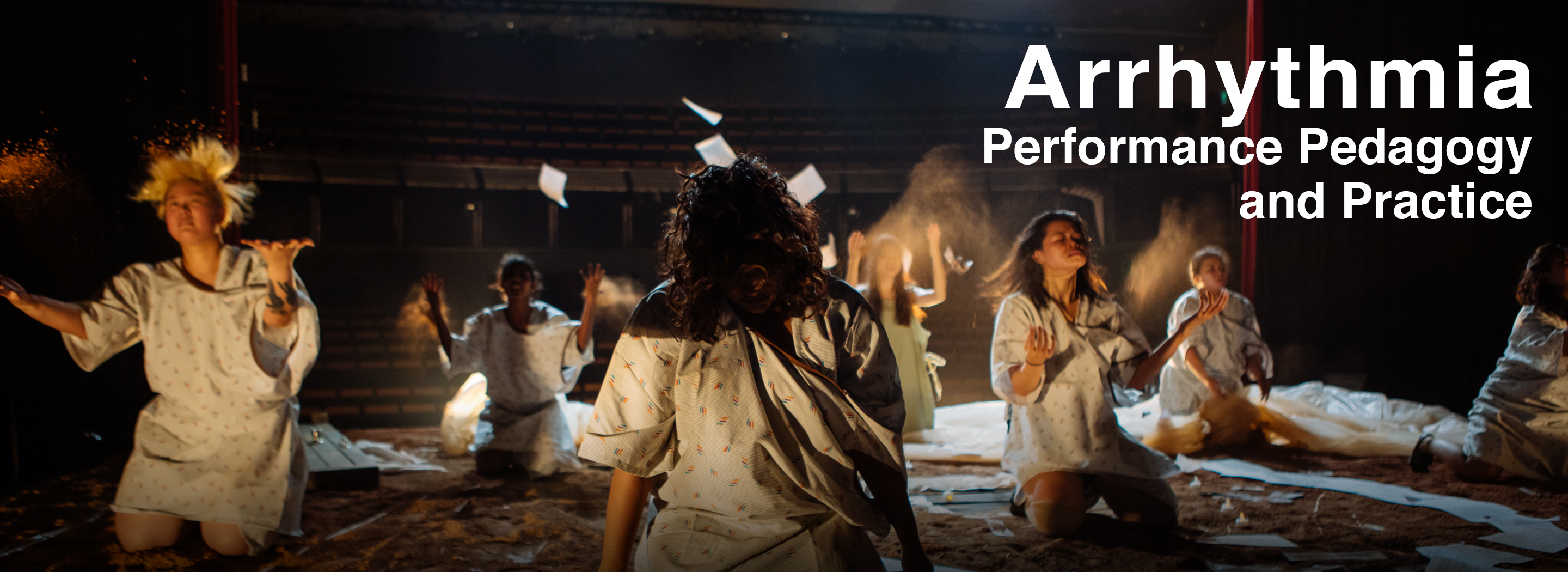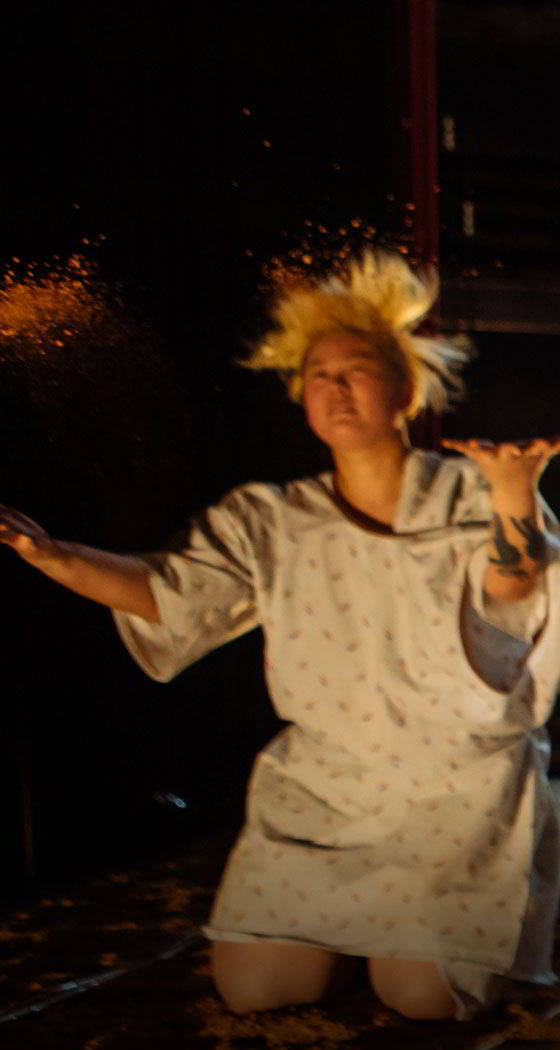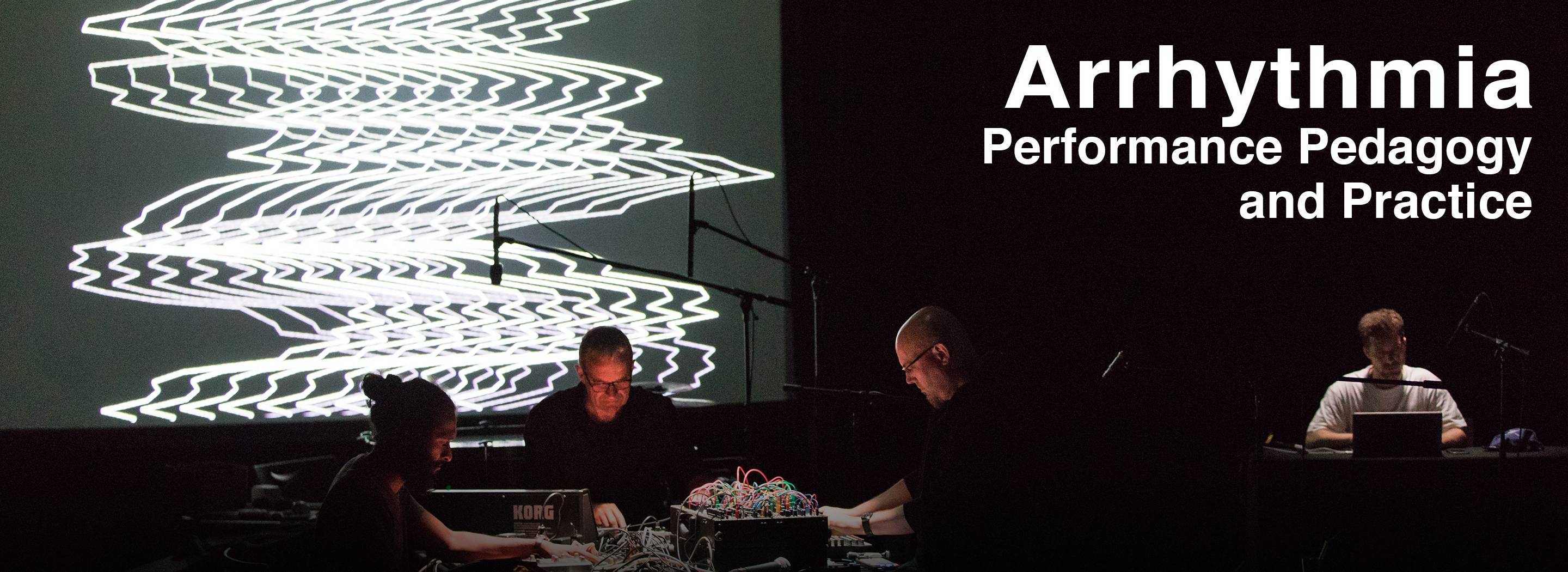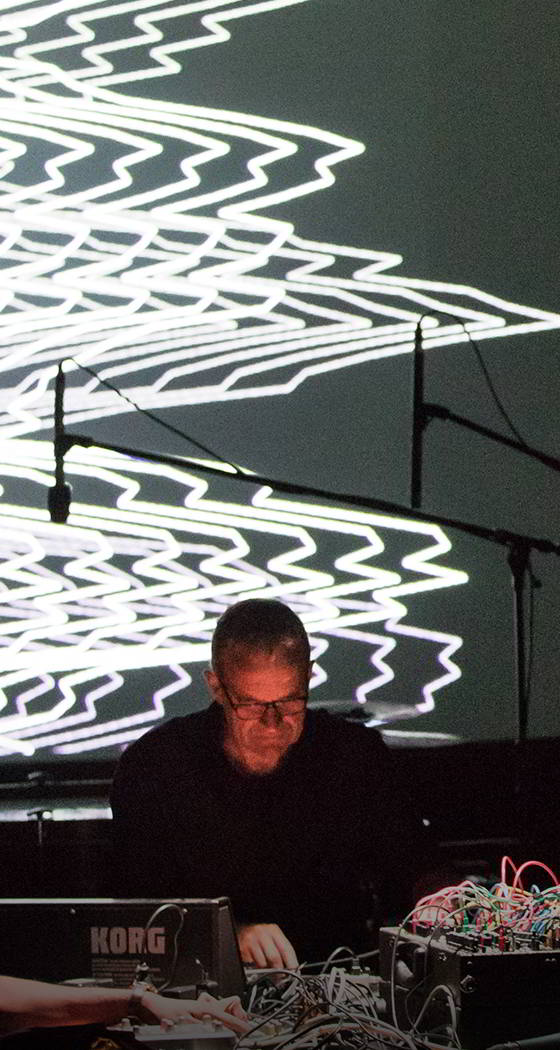Arrhythmia: Performance Pedagogy and Practice
We become more acutely aware of rhythm in its absence. The COVID-19 pandemic has altered our timing, and in doing so, disrupted how we conceive, practice and uphold performance pedagogy and practice.
Our current situation can be described as a generalised arrhythmia. Irregularity, missteps, deviations, and broken beats – these words become all the more relevant in performance pedagogy and practice. And yet, if performance is already an encounter and the unravelling of spaces out of this time and place, then what is performance but an arrhythmia in itself?
Arrhythmia: Performance Pedagogy and Practice is an online international conference organised by the Faculty of Performing Arts at LASALLE College of the Arts in Singapore. Artists and academics, faculty and students, will articulate the pandemic experience beyond its disruption and consequent digital turn.
Conference information
On behalf of the Faculty of Performing Arts at LASALLE College of the Arts, I welcome you to our conference: Arrhythmia: Performance Pedagogy and Practice.
For nearly 18 months, since the unsparing spread of the global pandemic that is COVID-19, the regular rhythms of our lives, our art, our performances, our teaching and individual practice, our research and all our relationships have been severely disrupted and forced to accept imposed irregular, erratic patterns.
Arrhythmia defines our state – jagged peaks and valleys have supplanted our once (seemingly) steady rhythms, jolting us into cataclysmic patterns. So, there is an urgency to address the unsteady state of embodied performance, pedagogy and practice and the way the beats and patterns of our work have been both thrown off, discharged and recharged, and repurposed in new keys.
Global conversations such as ours are addressing this erratic, arrhythmic state. As a faculty that works and schedules within units and measures of time, rarely missing a beat, our balance has been abruptly counterbalanced. Shapes have shifted, losing our sense of timing, struggling to find new ones. The disjointed has been re-jointed. We know that a work of genuinely contemporary art follows no steady pattern but obeys its own impulses and follows its own rhythms. The abnormal becomes the acceptable normal until shifting to become abnormal once more.
As I reach the end of my tenure as Dean of the Faculty Performing Arts and my time in Singapore and Southeast Asia, I feel time’s arrow swiftly shifting its trajectory and velocity. But the shape of the past, present and future come together in a disambiguation, which this conference will partly address. The pace of time and work before the COVID-19 pandemic seems distant and almost nostalgic, though much in the world has not changed – its wider problems and acclimatised evils have just been put on temporary pause. A pause during which we have all found time to reflect and steady our pace and adjust, as I once did, following a triple bypass operation years ago to cure my own arrhythmia.
We welcome you to the world of Arrhythmia and all that we will discuss over the coming days. The keynote with Peter Sellars on day 1 will set the pace of our conversations and hopefully our hearts racing as we all embrace what is to come. This is followed by a second keynote on day 2 from Melati Suryodarmo to shift the beat, the movement and the intentions. The conference ends with two pre-recorded performances featuring our Dance students and Music faculty on day 3 as a movement and music response to Arrhythmia as the pattern of neo-normal, a (re)adjustment to shifting patterns.
As the conference centres on talks and conversations by our guests, colleagues and students who join us globally and locally, we hope to diagnose what we have been through and offer some creative, overlapping prescriptions for our future work, back together.
Cor ad cor loquitur.
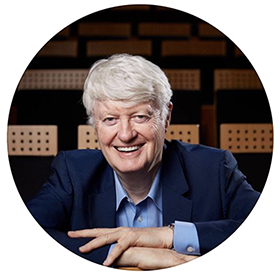
Professor Michael Earley
Dean, Faculty of Performing Arts
Produced by the Faculty of Performing Arts at LASALLE College of the Arts
Steering committee
Professor Michael Earley
Melissa Quek
Dr Timothy O’Dwyer
Dr Diego Celi
Dr Felipe Cervera (conference chair)
Production Manager
Cheria Sim
Keynote curation
Professor Michael Earley
Melissa Quek
Dr Diego Celi
Local symposium curation
Nora Samosir
Dr Darren Moore
Dr Felipe Cervera
Student panels curation
Dr Timothy O’Dwyer
Melissa Quek
Dr Peter Zazzali
Dayal Singh
Michael Budmani
Closing performance
BALL MEASURES (Ensemble)
Choreographer: Dapheny Chen and dancers
Dancers: Christina Cai, Goh Xue Li, Keanna Sharon, Kuku Claudia, Naval Elisha Jude Cenaro, Joanne Seow, Shahizman, Tam Ye Qi, Stefanie Teo, Tiara Rahyuni, Serene Tung
Lines of Force
Music: Black Zenith (Darren Moore and Brian O'Reilly)
Postscript
Dr Venka Purushothaman
Webpage and visual communication
Ailin Chin
Technical officers
Patrick Wong
Sayuthi Bin Jasmin
Muhammad Herman Bin Abdul Rahim
Technical support
Lee Kiong Wee
Amirul Azmi
Documentation and photography
Everlight Studio
Student hosts
Sofie Buligis
Gracian Chua
Angeal Cheong
Alexis Elizabeth Chew
Rebecca Ashley Dass
Michaela Hay
Benjamin Koh
Alexandra Kong
Kimberly Sim
Dana Sivarajan
Joel Tan
Su Paing Tun
Shamini Vasu
Special thanks
Professor Steve Dixon
Milenko Prvacki
Wong Meng Kong
Yuen Yee Foong
Zulkifli Hussain
Sureni Salgadoe
Eero Laine
Verne de la Peña
Bry Levina
Sir Anril Tiatco
Mahat Supri
Critical COVID-19 Creative Work: Kindness, Care, and Repair: Peter Sellars in Conversation with Michael Earley
COVID-19 and its variants have arrived overwhelmingly in our lives as terrible afflictions and tragedies. Tragedy is, by its nature, often humanly preventable, and enters our lives as a message and a teaching. COVID-19 has shockingly exposed longstanding inequality, injustice, and toxic human and environmental degradation that are lethal to life on this planet. We have 10 years to make major changes in the ways we are living. Of course, most of our institutions are resistant to change, and devastatingly slow to demonstrate real change. How do we, as artists, de-institutionalise our thinking and our actions to demonstrate meaningful, powerful and liberating change in our lives and in the world?
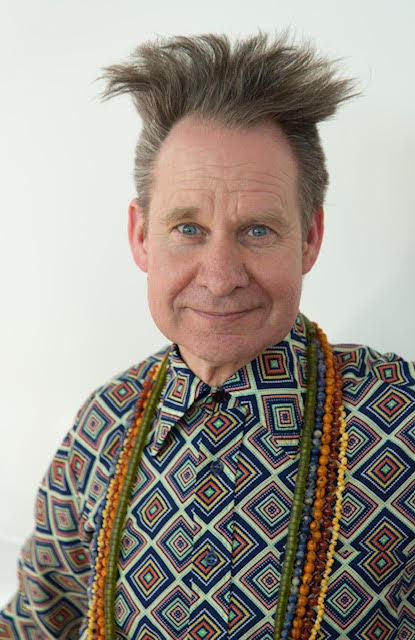 |
About the speaker MacArthur Fellow Peter Sellars is a distinguished professor in the UCLA Department of World Arts and Cultures/Dance, where he has taught since 1988. Known for exploring challenging moral issues such as race, war, poverty, and the international refugee crisis through his work, his most notable courses include Art as Moral Action and Art as Social Action. Sellars has gained international renown for his groundbreaking and transformative interpretations of artistic masterpieces and for collaborative projects with an extraordinary range of creative artists across three decades. Sellars is the founding director of the Boethius Institute at UCLA, which invites scholars, activists, and artists to work together on projects of public significance, exploring radical ways to rethink relationships of communities and complex issues, using the arts as the point of entry and the point of transformation. |
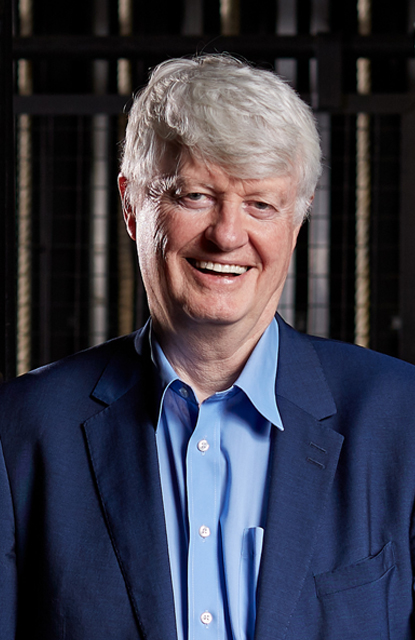 |
About Professor Michael Earley Professor Michael Earley is outgoing Dean of the Faculty of Performing Arts at LASALLE College of the Arts. He is Vice President of the Asia Pacific Bond of Theatre Schools and Academic Adviser to Stage Russia in Moscow. For over 30 years has headed and taught at leading international theatre programmes and conservatoires, including Rose Bruford College of Theatre and Performance in London, New York University’s Tisch School of the Arts and The Juilliard School in New York, Yale University’s Theatre Studies Program in Connecticut and founded the Lincoln School of Performing Arts and Lincoln Performing Arts Centre at the University of Lincoln in the U.K.. Beyond his work in higher education he has been Publishing Director of Methuen Drama Publishers in London and Chief Producer of Plays for BBC Radio Drama
|
Artist’s studio as an open space: Melati Suryodarmo in conversation with Melissa Quek
Art delivers life in a very special way, especially during these times, when the end of a crisis has been delayed or overdue. When the pandemic increases uncertainties in many aspects of art practices, our creativity drives us to find many ways to overcome the situation. Day by day, we explore our desire to continue creating and working, and our pace towards the future increasingly clear. And yet, although our digital technologies provide many possibilities to connect with the world despite distances, we discover various challenges in our artistic process.
Studio Plesungan, which Melati opened since 2012 for public programmes, has been an important part of her artistic work. It was created in order to empower the artistic community through education and laboratory projects. It was supposed to offer open spaces for explorations for young artists and art students, and to develop a strategy of learning processes with a special focus on the intersection of sustainable life and artistic work. During the pandemic, however, our activities have been operated virtually. This has brought some issues for performance students, whose physical practices have been replaced into an ineffective way of learning process.
In her presentation, Melati will share some thoughts and alternative strategies which she has been experimenting and practicing in Studio Plesugan’s performance education programmes since last year.
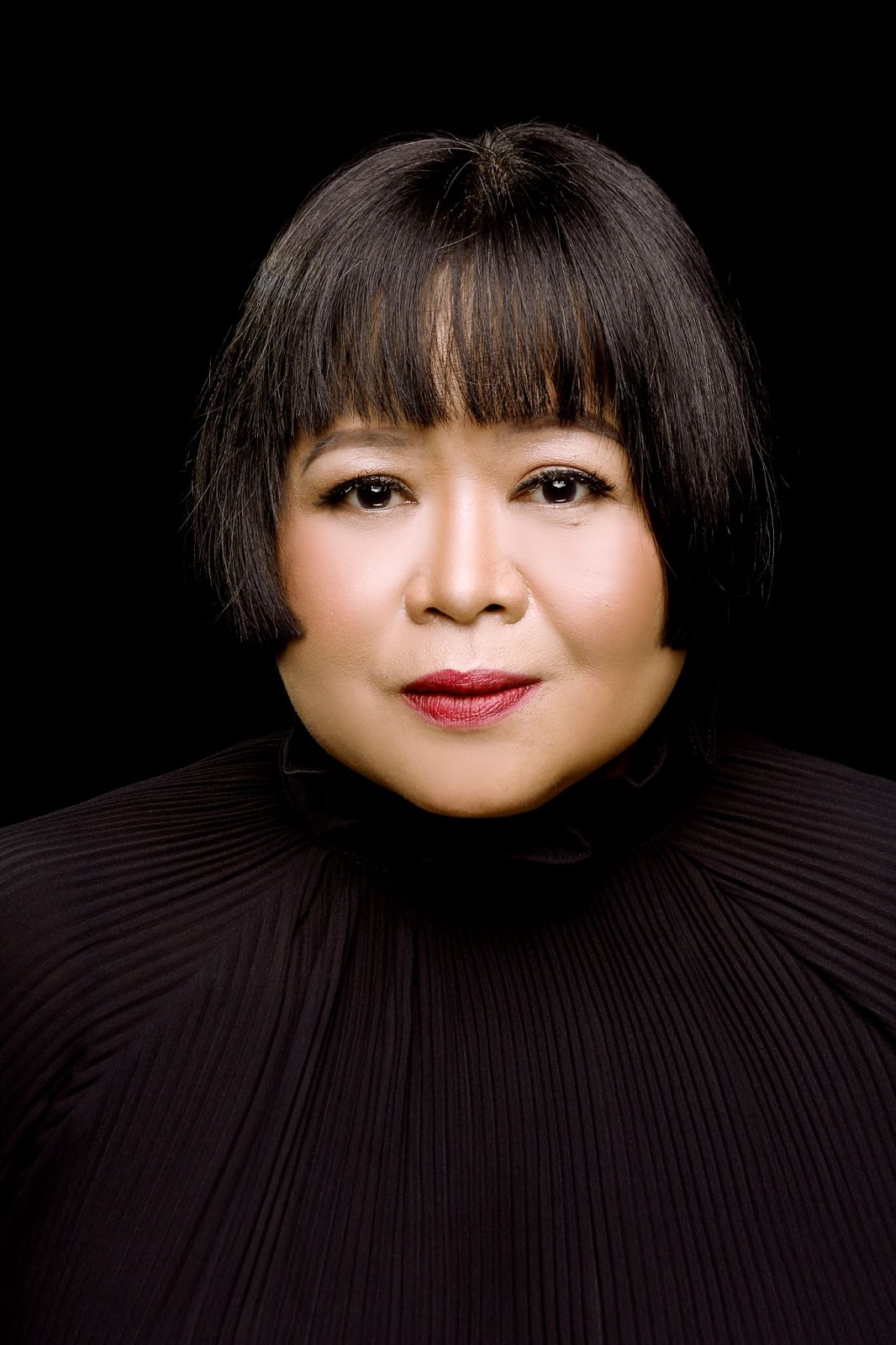 |
About the speaker Melati Suryodarmo (b. 1969, Solo, Indonesia) graduated from the Hochschule für Bildende Künste Braunscheweig, Germany. Her practice is informed by Butoh, contemporary dance, and history, among others. Her work is the result of ongoing research in the movements of the body and its relationship to the self and the world. These are translated into photography, dance choreography, video and live performances. Suryodarmo is interested in the psychological and physical agitations that result in lasting change in the individual, either if these are external or internal. She approaches the body as the home for memories and the self, rather than the individual itself, and the body’s system. |
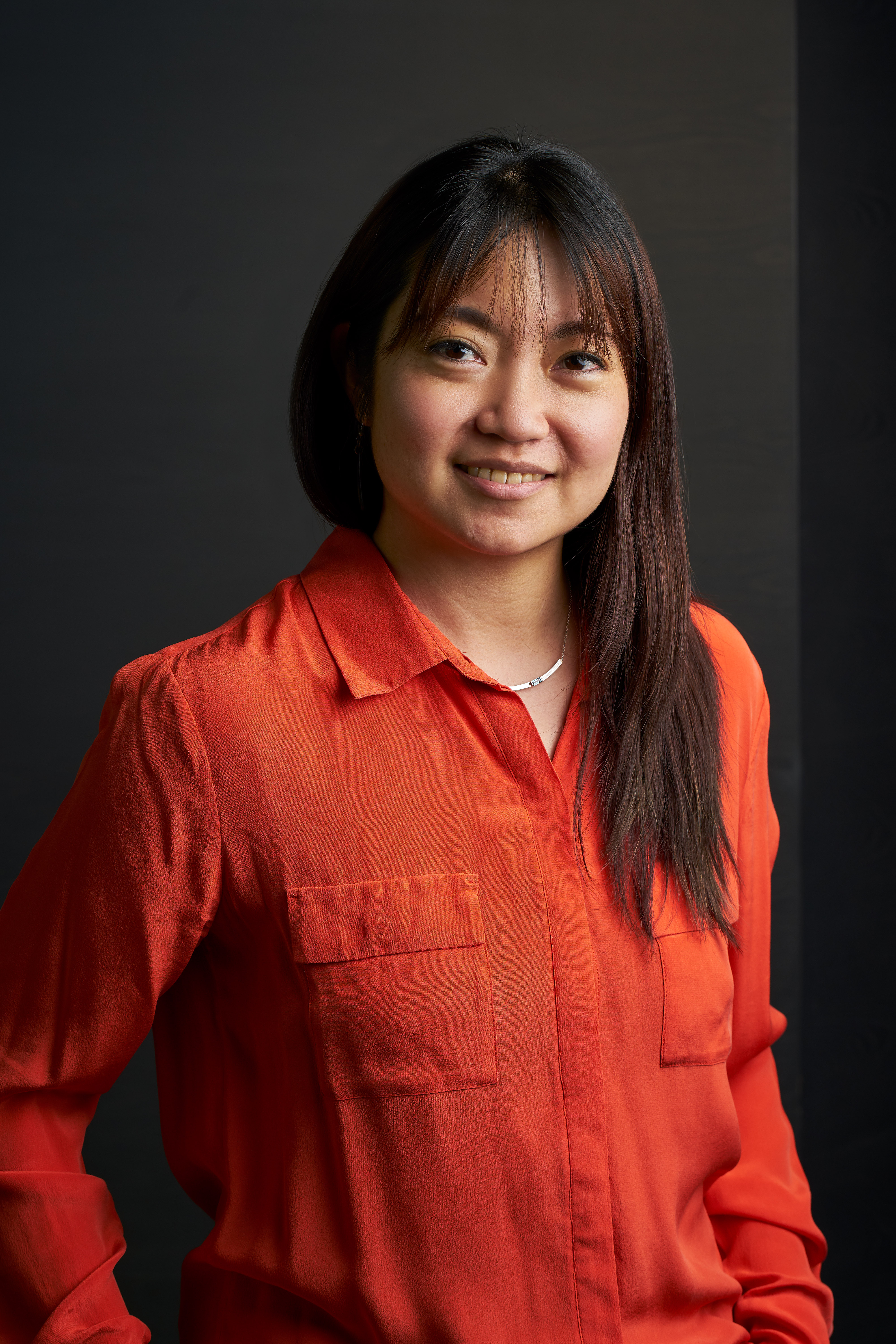 |
About Melissa Quek Melissa Quek is Head of the School of Dance & Theatre and leads the Diploma in Dance programme at LASALLE College of the Arts. She is a choreographer, performer and educator whose choreographic interest lies in investigating the body-subject. Her works and creative process attempt to touch on questions of agency, materiality and perception to create a visceral experience for the audience. She founded The Kueh Tutus (a collective dedicated to creating dance for young audiences) and has created several works that have been presented at The Artground, toured to regional libraries and appeared in the Esplanade’s Festivals Octoburst! and March On. Melissa has managed and designed various MOE-NAC Dance related initiatives such as the Talent Development Programme, and Strategic Partnership CCA (Ethnic Dance). Melissa occasionally writes dance reviews, articles and edu-packs to make contemporary dance more accessible. |
Please click on this link to see the local symposium’s schedule and book of abstracts.
For inquiries, please contact performing.arts@lasalle.edu.sg.
BALL MEASURES (Ensemble)
BALL MEASURES (Ensemble) is an iteration of BALL MEASURES – a series of work that takes on the Singapore Foreign Sports Talent Scheme debate as its foundation block. The series is a choreographic and performative practice that positions the ping pong ball as a collaborator. In BALL MEASURES (Ensemble), the work expands the relationship we have with the other(s) and re-examines the dancing body as a construct of choreography. It acknowledges the intangible moments and transformations that arise and occur through the body’s existence with the other(s) as composition. Accumulating information that re-frames and re-educates the way we make, view and engage ‘dance’.
Choreographer: Dapheny Chen and dancers
Dancers: Christina Cai, Goh Xue Li, Keanna Sharon, Kuku Claudia, Naval Elisha Jude Cenaro, Joanne Seow, Shahizman, Tam Ye Qi, Stefanie Teo, Tiara Rahyuni, Serene Tung
Lines of Force
Lines of Force explores rhythm as a fractal connector between acoustically and electronically generated rhythmic elements. Electro-acoustic duo Black Zenith creates an eco-system of polyrhythmic artefacts with drums, triggers, modular synthesisers, and electronic effects to harness layers of time that extrapolate into a multitude of lineages.
Music: Black Zenith (Darren Moore and Brian O'Reilly)
Moderated by Dayal Singh, Alison D'amato and Olivia Nieto.
What has been the impact the pandemic has had on discussions about cultural representation and appropriation in the context of Musical Theatre? Have the traditional rhythms of casting been altered in light of movements like BLM and decolonial advocacy? How can musical theatre practitioners gather to reflect and envision a more equitable aesthetics for the future? Musical theatre students from LASALLE and State University of New York at Buffalo, along with a directing student from University The University of The Philippines Diliman will address these questions in response to the conference topic.
Panelists:
LASALLE College of the Arts
Faculty Member: Dayal Singh (Programme Leader, BA(Hons) Musical Theatre
Students: Melissa May Arcangeles Garcia, Sofie Buligis, Seah Janice
State University of New York at Buffalo
Faculty Member: Alison D’Amato (Lecturer, Musical Theatre, Department of Theatre and Dance)
Students: Students: Lauren Masterpolo, Derrian Brown, Anna Fernandez
University of the Philippines Diliman
Faculty Member: Olivia Nieto (Assistant Professor, Department of Speech Communication and Theatre Arts)
Student: Veronica Ala Fortuna
Moderated by Dr Peter Zazzali, Melissa Maramara and Olivia Nieto.
Is there a rhythm to learning acting? Can we identify a "rhythmic trajectory" to the actor’s learning process and if so what is it? How do pace and flow correspond with disruptions and (perceived) setbacks in training? Is learning how to act a linear process? How do culture and identity factor into an actor's development? Acting students from LASALLE, Ateneo de Manila University, and The University of The Philippines Diliman will address these questions as part of a forum discussion monitored by their respective instructors.
Panelists
Ateneo de Manila University
Faculty Member: Melissa Vera M. Maramara (Assistant Professor Department of Fine Arts)
Students: Alyssa Jamille Binay, Zoë de Ocampo, and Austin Gonzales
LASALLE College of the Arts
Faculty Member: Dr. Peter Zazzali (Senior Lecturer of Acting)
Students: Ethan Curentt, Gracian Chua, and Shamini Vasu
University of the Philippines Diliman
Faculty Member: Olivia Nieto (Assistant Professor, Department of Speech Communication and Theatre Arts)
Student: Antila Nikole M. Africa
Lead by Tim O’Dwyer and Verne Dela Peña
This session will present a live collaboration between students and staff from Silpakorn University Thailand, The University of the Philippines, and the School of Contemporary Music at LASALLE College of the Arts in Singapore. The performance/workshop will be in real-time. Our starting points and research questions outline what is the nature of listening whilst improvising online? How is the musical cadence affected, rupture, and transformed? How do these things, in turn, affect musical decisions?
Panellists
LASALLE College of the Arts:
Faculty Member: Dr Tim O'Dwyer, Head of the School of Contemporary Music
Students: Cheong Xin Ying (electronic music) and Nadia Margawi (electronic music)
University of the Philippines Diliman (The Philippines):
Faculty Member: Verne dela Peña (Dean of the College)
Students: Paul Malicdem (kulintang) and Rose Panuelos (dance)
Silpakorn University (Thailand):
Faculty Member: Chanutr Techatananan, (Deputy Dean for Academic Services and International Affairs, Silpakorn University)
Students: Ittitep Chummek (drums) and Tonwong Manphajong (Tenor Saxophone)
Moderated by Michael Budmani.
One of the many things evidenced by the COVID-19 pandemic is that artists do not allow circumstances to stop them creating. Theatre-makers pivoted and moved their storytelling online, utilising technology to help them to continue to share their work with their audiences. How did technical directors, stage managers and designers adapt to the new normal in Southeast Asia? What will the future be like for this key sector of the theatre industry? In this panel, industry professionals, academics, and students from Singapore and The Philippines reflect on the last year and ponder on the challenges ahead.
Panelists:
Michael Budmani (Programme Leader, Diploma in Theatre and Production Management, LASALLE College of the Arts, Singapore)
Kenny Wong (Head, Technical Production, The Esplanade Theatres-by-the-Bay, Singapore)
Juliet Chia (Deputy Artistic Director at Singapore Repertory Theatre)
Olivia Nieto (Assistant Professor, Department of Speech Communication and Theatre Arts)
Petrina Dawn Tan (Designer, Singapore)
Muhammad Nurfadhli Bin Jasni (Student, Diploma in Theatre and Production Management, LASALLE College of the Arts, Singapore)
Pete Andrei V. Fabricante (Student, Department of Speech Communication and Theatre Arts)
Distance is one way in which we measure rhythm: intervals between here and there, then and now, you and me. In this collection of solos, Diploma in Dance students respond to the conference topic by interpreting the distances between people, ideals or the tension within ourselves.
Performers: Stefanie Teo, Goh Xue Li, Keanna Sharon, Joanne Seow, Tiara Rahyuni Sudewo.
Guided by Yarra Ileto
Premiere: Thursday 3 June 2021
Watch this space for the launch of Training Utopias, an issue of Performance Research edited by Prof Michael Earley, Felipe Cervera and Elizabeth de Roza. Coming soon, June 2021.
Performance Research is a leading international journal in theatre and performance studies. Published by Taylor & Francis, it releases eight issues every year. For more information and previous issues, click here.
Watch this space for the publication of a selection of the papers presented in Arrhythmia: Performance Pedagogy and Practice in a special issue of ISSUE.
ISSUE is a peer-reviewed international art journal, edited by LASALLE’s Provost and Deputy President, Dr Venka Purushothaman. For more information and previous issues, click here.
School of Contemporary Music
Lunchtime Concert Series: Alemay Fernandez and The Sharik Hasan Trio
Lunchtime Concert Series: The Observatory
Lunchtime Concert Series: Tricks and Treats: Valerie Tjota and Eshan Denipitiya
Rock and Indie Festival (RIF) 2020
Lunchtime Concert Series: LASALLE Boleh Djoget! by The Jazz Djogets
Lunchtime Concert Series: Havana Social Club Live (Cuban & Latin Music Concert)
Lunchtime Concert Series: Joo Chiat Sessions
Lunchtime Concert Series: Bakers In Space
Lunchtime Concert Series: The AJL Groop presents 'Toons at noon for the soul!'
Lunchtime Concert Series: Groove Works
Lunchtime Concert Series: Samsara
Lunchtime Concert Series: Erik Satay & The Kampong Arkestra
Piano Voyage – Global Transmission: The Museum of Musical Infection
School of Dance & Theatre
godeatgod
Rashomon
Mama Looking for Her Cat
Vassa
The Measure of Me
Homesick
Musical Theatre Showcase 2021
Ma Courage

